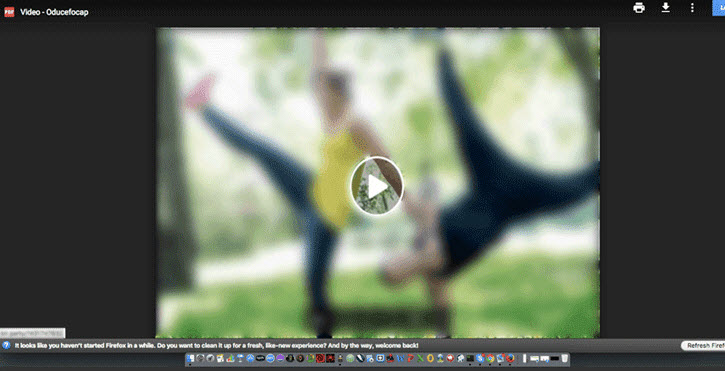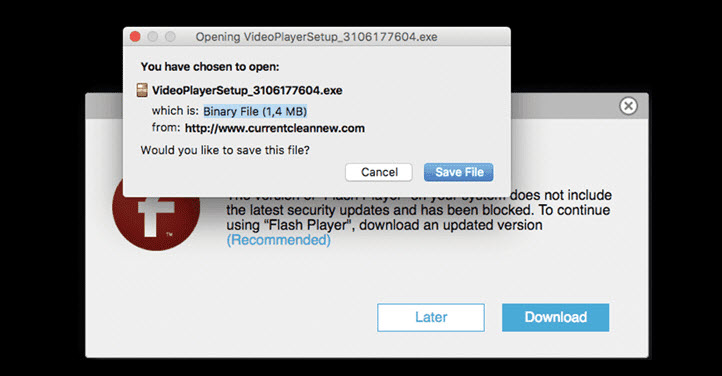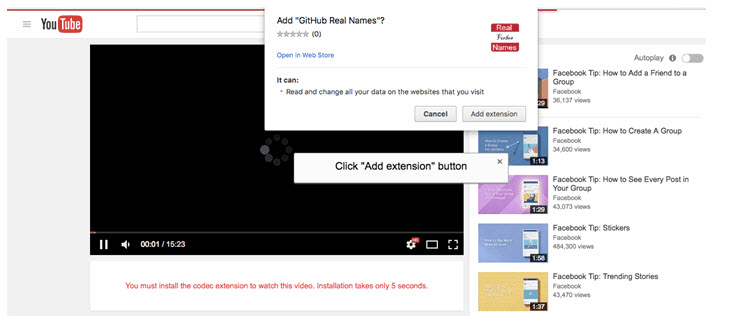Has a friend recently sent you a video link via Facebook Messenger? Be careful, it could be a virus. At least according to security experts at Kaspersky Lab. Below, we’ll tell you everything you need to know about this threat, and how to prevent it.
The virus is passed through a Facebook message from a friend. On his/her behalf, you’ll receive a shortened link (usually from the domain bit.ly) with the text “<your friend’s name> Video.” It looks like the image below:


Obviously, your friend David didn’t send you this message. Rather, a hacker took advantage of a vulnerability in his account to try to spread the virus to you.
If we click on the link, it takes us to a Google doc with an image based on one your friend has on Facebook, posing as a video. If you click it, it takes you to another site depending on the browser and the operating system used (yeah, nobody’s in the clear, as it affects Windows, Mac and Linux).

For example, if you’re using Firefox on Windows, by clicking the fake video, you’ll be redirected to a site with a fake window to update Flash Player and an .exe file that mimics the actual update.

Instead, if the victim accesses it from Chrome, he/she will be redirected to a page that looks like YouTube and displays an error message that prompts us to download a browser extension. This extension is actually a “downloader” that lets a malicious file enter your PC.

Hackers’ reasons for this malicious act seem to be purely economic: the files installed without our permission are adware, i.e. a means to show us unwanted ads that hackers profit from.
How can I prevent this virus?
As always, common sense is the best antidote to any virus. Be cautious of any strange links: if a friend sends you something, he/she will message you more personally than hackers using bots.
In addition, always keep your PC updated and use antivirus and other security programs. In most cases, this will prevent any infection.
To wrap up this article, we’ll leave you with several security tips you should keep in mind if you’re a PC user (things you should never share on Facebook!).
7 things you should never share on Facebook by softonic-en
Source: The Hacker News
Related Links
The baffling truth behind the AI Facebook shut down “out of fear it was conspiring against humanity”

